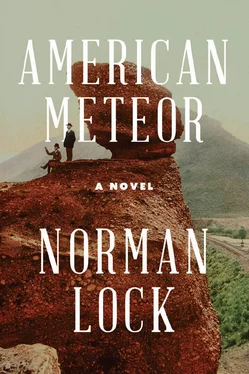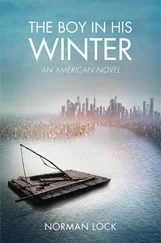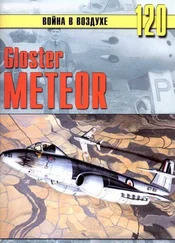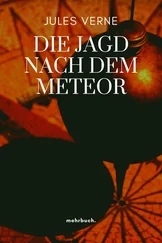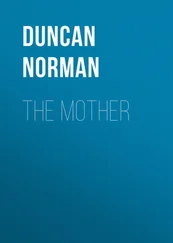Near the end of his dreaming in me, I saw how earth came to resemble its moon and the near planets, revolving to no purpose in its worn orbit until, at the end of time — for time will end — it fell into the sun.
“You picture a world—”
Crazy Horse pictured it.
“Crazy Horse, then, to humor you. A world without a morsel of goodness or hope and with not even so much as a tussock of grass to clutch and pull ourselves from the mire. It goes against the American grain!”
Jay, there are always optimists who will step close to a house on fire because they happen to be cold. They see good in everything — even the day when bees will be extinct, because they fear the pain of an occasional sting.
“What the world needs is more good whiskey to rid it of its rust. Here — doctor’s orders. In your present frame of mind, a jigger won’t do you any harm. Stephen, I never took you for a weakling. We’d still be sitting on Plymouth Rock if we’d been afraid of getting our hands and consciences dirty. I held my tongue while you smeared the good name of Custer, who was a great American in my book. Virtue is unattractive in a man and a nuisance in a woman. And where would we be without Durant and the railroad? On the other side of the Mississippi, cutting one another’s throats for a piece of played-out land. I won’t cry over the buffalo or the Indians. Neither did the country any good, so far as I can see. Thanks for the whiskey — I’ve got to be going. Bess’ll scalp me if I’m late for Sunday dinner. I’ll see myself out. Get some rest — you must be tired after so much jawing. And I wouldn’t worry too much about the future if I were you. Like it says in the Bible, ‘The earth abideth forever.’ ”
You cleared out of here as if you didn’t want to be saddled with a corpse before you could eat your roast. Not that I blame you; nobody does a piece of veal like your Bess. I’ve always envied you your life, Jay. I don’t know what you made of my story. I suppose you’ve heard ravings from the sickbed just as outlandish.
The last time Crazy Horse came to me, he said, “I am destined to live forever in an empire of grass and wind and water, when all else is dust. There, fish thread their silver or their gold through sunlit rivers, birds fly their shadows over the hills, and apple, pear, and plum trees drop their fruit, unbruised, onto the tall grass, as if it were a gift left on the doorstep for our refreshment. At the end of the day, we lie down together in the lee of the hill and give thanks to all that is alive for what is alive in us — certain that the sun will rise again. I do not see you there.”
He turned and walked away, leaving me to wonder if I’d heard him correctly or if he’d even spoken at all. And then I thought I saw my mother, Lincoln, Whitman, Sitting Bull, Fire Briskly Burning, Chen — all of them walking, nonchalant and beautiful, across the rim of the sun. And I seemed to hear drums and the distant thunder of many millions of buffalo galloping across tall prairie grass leaning in the wind.
Norman Lock’s novel The Boy in His Winter (2014) and his story collection Love Among the Particles (2013) were also published by Bellevue Literary Press. Recently, his play The House of Correction was performed in Istanbul and Athens; his radio drama Mounting Panic was produced by WDR Germany. He has won The Paris Review Aga Khan Prize for Fiction and the Dactyl Foundation for the Arts & Humanities Literary Fiction Award, and writing fellowships from the New Jersey Council on the Arts (1999, 2013), the Pennsylvania Council on the Arts (2009), and the National Endowment for the Arts (2011). Norman lives in Aberdeen, New Jersey, nearby Raritan/Lower New York Bay, with his wife, Helen.
This book would not have seen the light of day if not for the publisher and editorial director of Bellevue Literary Press, Erika Goldman, who not only recognized in it a story needing to be retold to a new generation of Americans but also saw in its first draft a weakness needing to be overcome. She has my admiration and thanks, as does her colleague and the press’s founding publisher, Jerome Lowenstein, M.D., as well as its associate editor, Leslie Hodgkins; publishing assistant, Crystal Sikma; publicist, Molly Mikolowski; and production and design director, Joe Gannon. I write with an ideal reader in mind. For this book, there were two of them: Erika and Carol Edwards, who edited it.
I am indebted to Edward Renn and David Moore, whose friendship creates an interior space conducive to the task of writing. I am grateful for the examples of a conscientious and compassionate nature set by my daughter and by my son. As director of Baykeeper’s Oyster Restoration Program, Meredith works to improve water quality and increase species richness in New York harbor; Nicholas has cared for animals, wild and tame. Both have reminded me of what is due the natural world, which is also ours. Lastly, I acknowledge, with profound feeling, my wife, Helen, whose unquestioning love for forty-seven years has been the mainstay and the saving of my life.
A further acknowledgment. Huck Finn said about Mark Twain, “He told the truth, mainly.” Likewise, I’ve given myself license to do what storytellers must, in aid of a higher truth and a livelier yarn — that is, to play fast and loose, on occasion, with history — its places, persons, and incidents. Any historians among this novel’s readers will, I hope, pardon my liberties.
Excerpts originally appeared in Blue Earth Review and Green Mountains Review .
